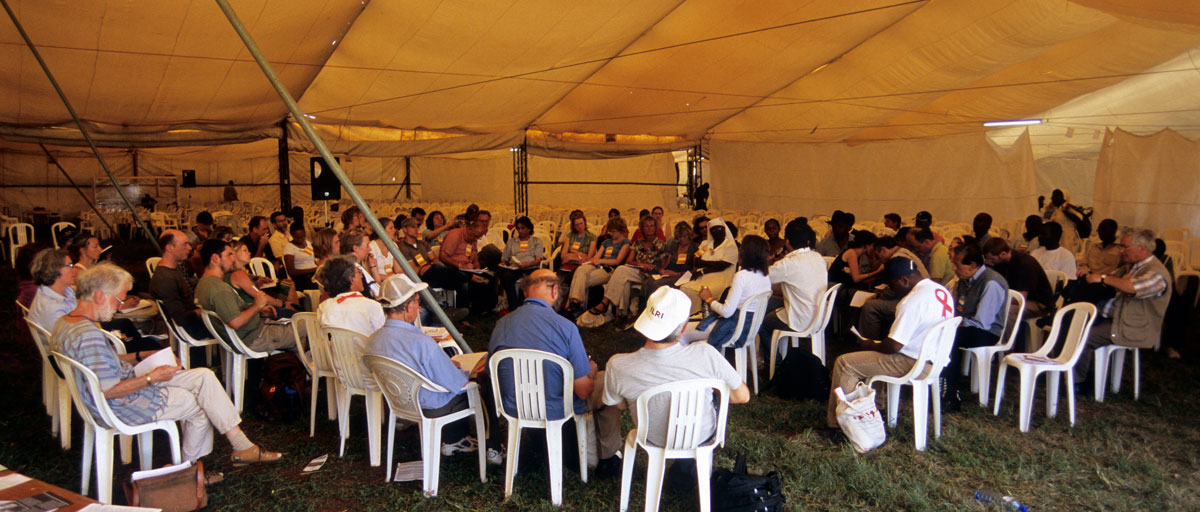
Amid an increasing recognition of including diverse knowledge systems in decision-making for sustainable development, a recent publication presents the Multiple Evidence Base as an approach to working with inclusivity. Photo: R. Kautsky/Azote
Knowledge systems
Revealing parallels and synergies
New approach helps connect actors with diverse knowledge about social-ecological governance
- Phase one of the suggested multiple evidence base approach involves collaborating to identify problems and defining goals
- Phase two focuses on bringing together the different knowledge systems to create a more complete picture of the problems and goals
- The third phase involves a joint analysis and evaluation where the participants should reflect upon social and environmental implications of the results
The speed and magnitude of global environmental change is placing demands on humanity to be innovative. In such efforts, there is an increasing recognition of the importance of embracing different knowledge systems on equal terms in processes of decision-making.
"Understanding the functions and processes in social-ecological systems is vital for sustainable management and stewardship. Local and indigenous as well as practitioner knowledge play an important part in increasing our understanding of the systems, painting a more complete picture," says centre researcher Maria Tengö.
"However, to fully build on this potential, diverse knowledge systems need to be included on equal terms," she continues.
Together with centre colleagues Thomas Elmqvist and Pernilla Malmer, Tengö recently published a paper in Ambio on the importance of mechanisms for creating synergies between knowledge systems in ways that are transparent, legitimate and constructive.
Multiple evidence base
In their study, Tengö, Elmqvist and Malmer present the Multiple Evidence Base approach. This is an approach on ways to successfully include a diverse set of knowledge systems on equal terms in international initiatives such as the Intergovernmental Science-Policy Platform on Biodiversity and Ecosystem Services (IPBES).
The Multiple Evidence Base emphasizes that knowledge systems can complement each other and that it is important to let each knowledge system speak for itself within its own context, without assigning one system the dominant role of validating the other ones.
The aim of the approach is to promote connections between knowledge systems in a respectful and equal manner for the benefit of more sustainable governance of social-ecological systems
Pernilla Malmer stresses the importance of acknowedling the power issues related to bridging between scientific and locally produced knowledge.
"The Multiple Evidence Base focuses on creating a process of collaboration between those involved, and this focus on the process can help to balance the power dynamics and maintain the integrity of knowledge systems"
Pernilla Malmer, co-author
Key to the approach, and to developing synergies between knowledge systems, is a continuous dialogue and reciprocity in the exchange between those involved throughout the process.
Three distinctive features separate a dialogue from a conversation: a dialogue is characterized by (1) equality and absence of coercion, (2) that parties listen with empathy, and (3) that assumptions held are brought out into the open.
The paper itself represents an outcome of such a dialogue process, including the dialogue seminars run by SwedBio. From an early stage, the initial ideas of a Multiple Evidence Base approach have been presented for extensive "peer-review" and discussions by representatives from diverse knowledge systems. Essential in this process has been the International Indigenous Forum for Biodiversity (IIFB) and African Biodiversity Network (ABN).
Three phases
In the article the authors outline three phases of the multiple evidence base approach:
Phase one involves collaborating to identify problems and defining goals of the process, recognizing cross-scale interactions of drivers and local responses. This co-production is important for creating a platform where synergies between knowledge systems can emerge.
Phase two focuses on bringing together the different knowledge systems to create a more complete picture of the problems and goals that have been defined. In this phase the similarities, differences, complementarities and contradictions between the different knowledge systems can be discussed.
The third phase involves a joint analysis and evaluation where the participants should reflect upon social and environmental implications of the results. They should also consider knowledge gaps that still remain, and potential new collaborations to explore.
Respect, reciprocity and equity
"Connecting diverse knowledge systems through a multiple evidence base approach is not only a way of organizing existing knowledge that we need for assessments and improving policy. It also supports and enhances mechanisms for learning and decision making in the context of managing dynamic social-ecological systems," says Maria Tengö.
The authors conclude that there is a need for a mindshift in how we look upon knowledges from diverse systems. The multiple evidence base approach allows for connections between knowledge systems in a way that embraces respect, reciprocity and equity.
It is also an important part of nurturing the diversity of sources for innovation, experience and insights.
Citation
Tengö, M., Brondizio, E., Elmqvist, T., Malmer, P., Spierenburg, M. 2014. Connecting diverse knowledge systems for enhanced ecosystem governance - The Multiple Evidence Base approach. AMBIO, 10.1007/s13280-014-0501-3
Maria Tengö has a PhD in Natural Research Management from Stockholm University. Her research concerns emergent and self-organized governance of local ecosystems and the implications it has for resilience and transformation.
Thomas Elmqvist is a professor in Natural Resource Management at Stockholm University. His research is focused on ecosystem services, land use change, natural disturbances and components of resilience including the role of social institutions.
Pernilla Malmer is an agronomist by training and holds a comprehensive professional experience of working with indigenous peoples organizations and networks, farmers' organizations, NGOs and biodiversity/agriculture networks in general, from local to global scales, in Sweden as well as in Latin America, Africa and Asia.






